Dead family
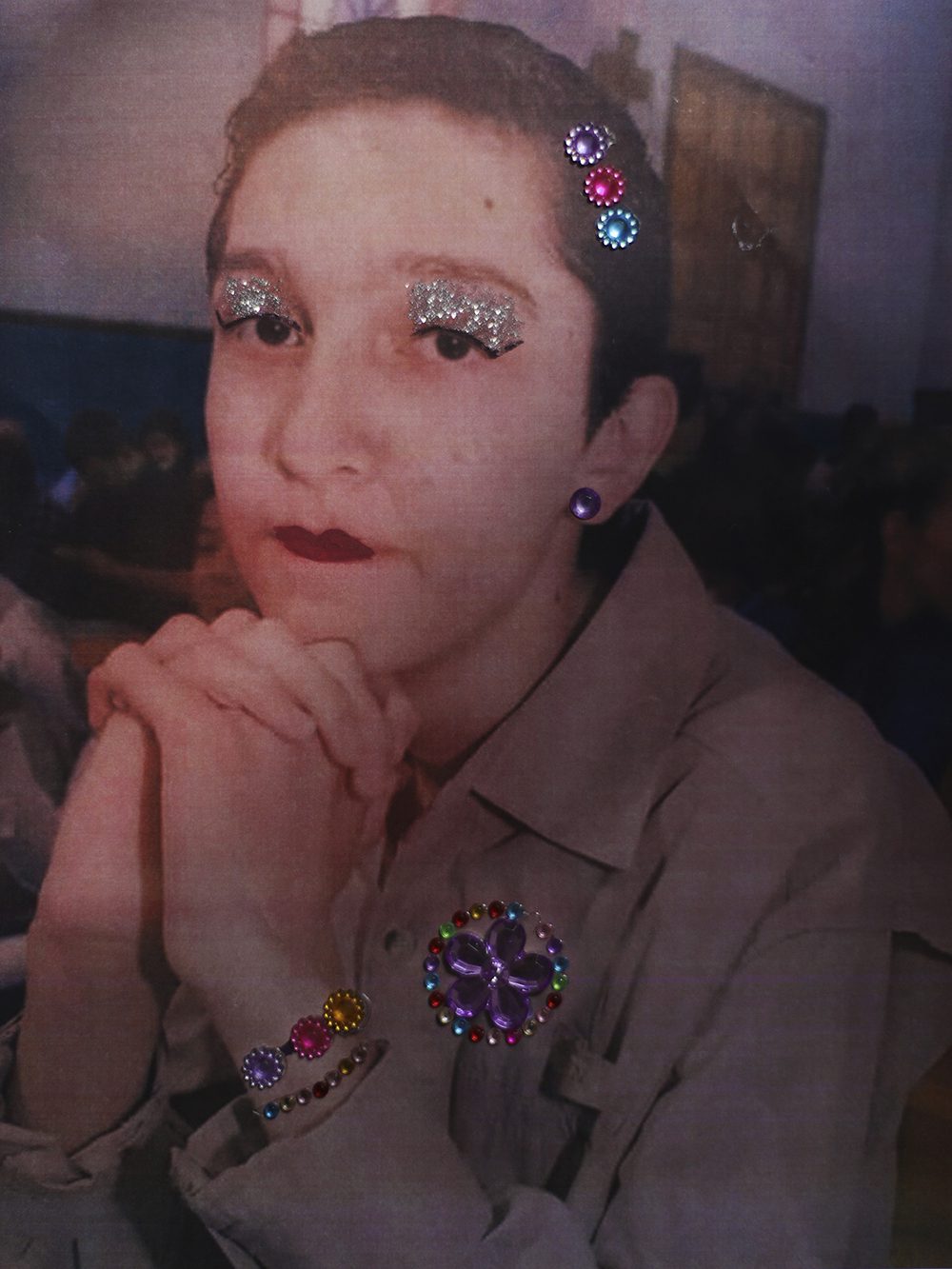
Intervention by Agnes (23) Venezuelan trans woman. Agnes’ family archive. 2012, Mérida, Venezuela.
Deze serie is de winnaar van de PRIDE PHOTO AWARD 2023. De jury prijst Pérez’ beslissing om meerdere verhalen van verschillende LHBTQIA+ mensen op een speelse manier te verwerken om de controle over de eigen geschiedenis terug te krijgen. Het toont ons het belang aan van inclusie en identiteit in historische archivering. Als zodanig past de serie goed bij het PRIDE PHOTO-thema van dit jaar.
Toen Andrés Gregorio Pérez opnieuw in hun persoonlijke familiealbums keek, besefte hen dat hun ware ik niet op de foto’s zichtbaar was. Eerder een weerspiegeling van de opgelegde verwachtingen van hun biologische familie. Genderneutraal opvoeden is nog steeds uitzonderlijk.
Toen Pérez dit besprak met andere LHBTQIA+ personen, bleken velen hun identiteit ook niet te herkennen op vroege familiefoto’s. ‘Dead Family’ is een artistieke zoektocht naar de functie van het familiearchief. Deze albums tonen vaak dominante, binaire, heteronormatieve verhalen en bieden weinig ruimte voor andere identiteiten, waardoor deze onzichtbaar blijven in historische verslagen.
Deze serie van Perez omarmt en stimuleert de veelkleurigheid van de LGBTQIA+-gemeenschap. Elke deelnemer werd uitgedaagd om een creatieve bewerking te maken van hun persoonlijke familiealbum om zich voor te stellen hoe een inclusieve herinnering, die hun ware identiteit weerspiegelt, zou voelen.
Over de fotograaf
Andrés Pérez is een non-binair kunstenaar en autodidactisch fotograaf, geboren in 1993 in Venezuela. Door hun kunst- en filmstudies aan de Universidad Central de Venezuela bouwde hen een gevoelig voor beeld op. In 2019 migreerden heb naar Bogota-Colombia en deze reis viel samen met de beslissing om hun fotografische carrière te starten.
Hun verhalen zijn gericht op Venezolaanse migratie, in het bijzonder LHBTQIA+, identiteit, gender, queer lichaam en binair geweld. Hen behandelt andere thema’s die verband houden met het anti-patriarchale verhaal en de deconstructie van het heteronormatieve, met het oog op het behoud van een meer diverse herinnering. Als verhalenverteller voelen hen niet alleen de behoefte om anderen te vertellen, hen is ook geïnteresseerd in het spreken vanuit een intieme en autobiografische plek. Hun beeldtaal is een mix tussen portretten, documentaire verhalen, mode en uitgebreide fotografie.
Gedurende 2021 maakte Pérez deel uit van het Semillero Migrante programma, een ruimte waarin hen hun eerste project Espectro ontwikkelde. Winnaar van de Pride Photo Award 2023 categorie Series, met ‘Dead family’. Hun werk is tentoongesteld in: Salón Nacional de la coexistencia 2021 (Venezuela), Encuentro Fotográfico de Santander (Colombia), Organización Nelson Garrido (Venezuela), Vist Projects (LATAM) en National Museum of Photography (Noorwegen).
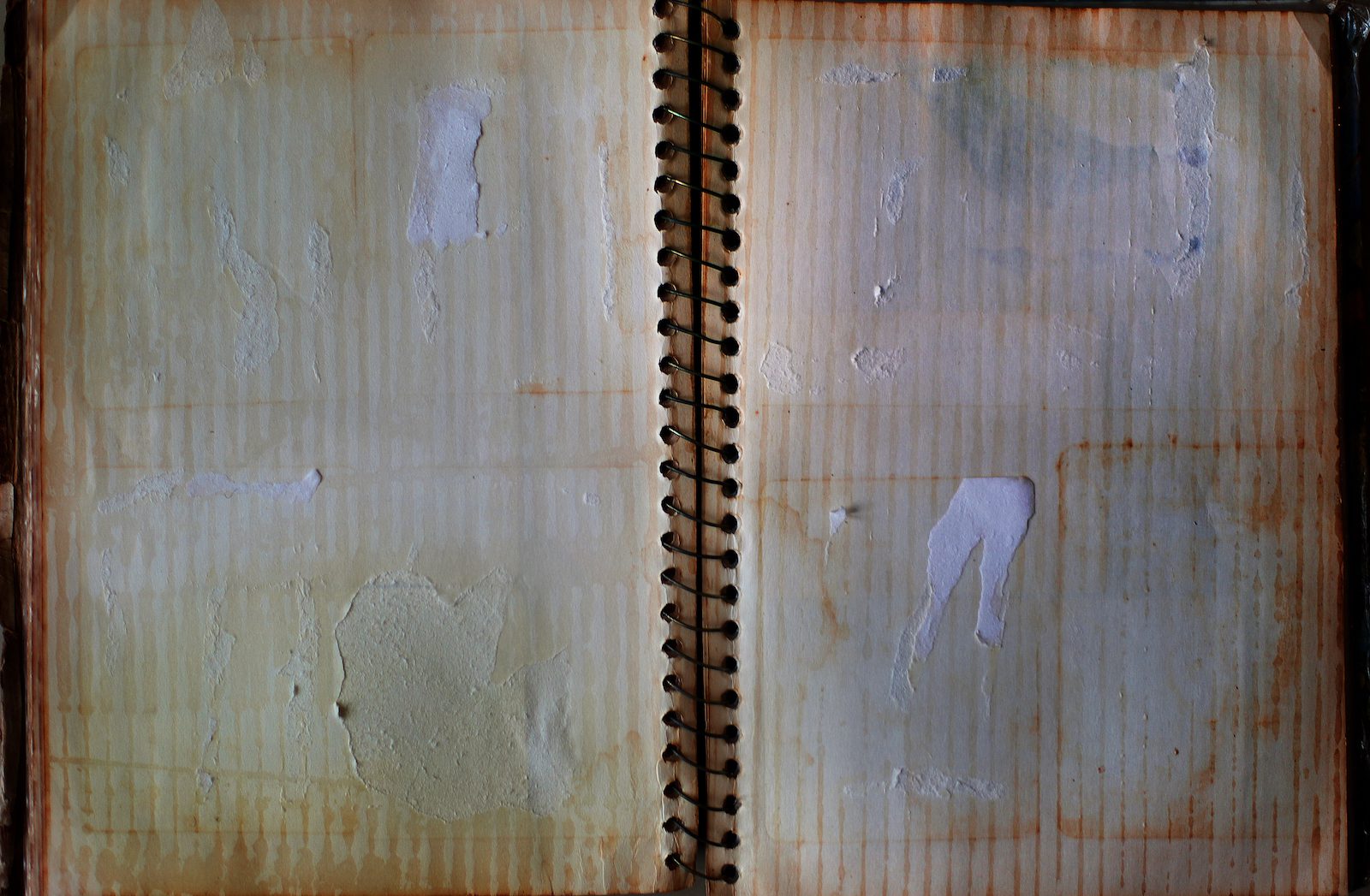
Photographic albums are normative and systematic spaces that mostly protect heterofamilial memories.
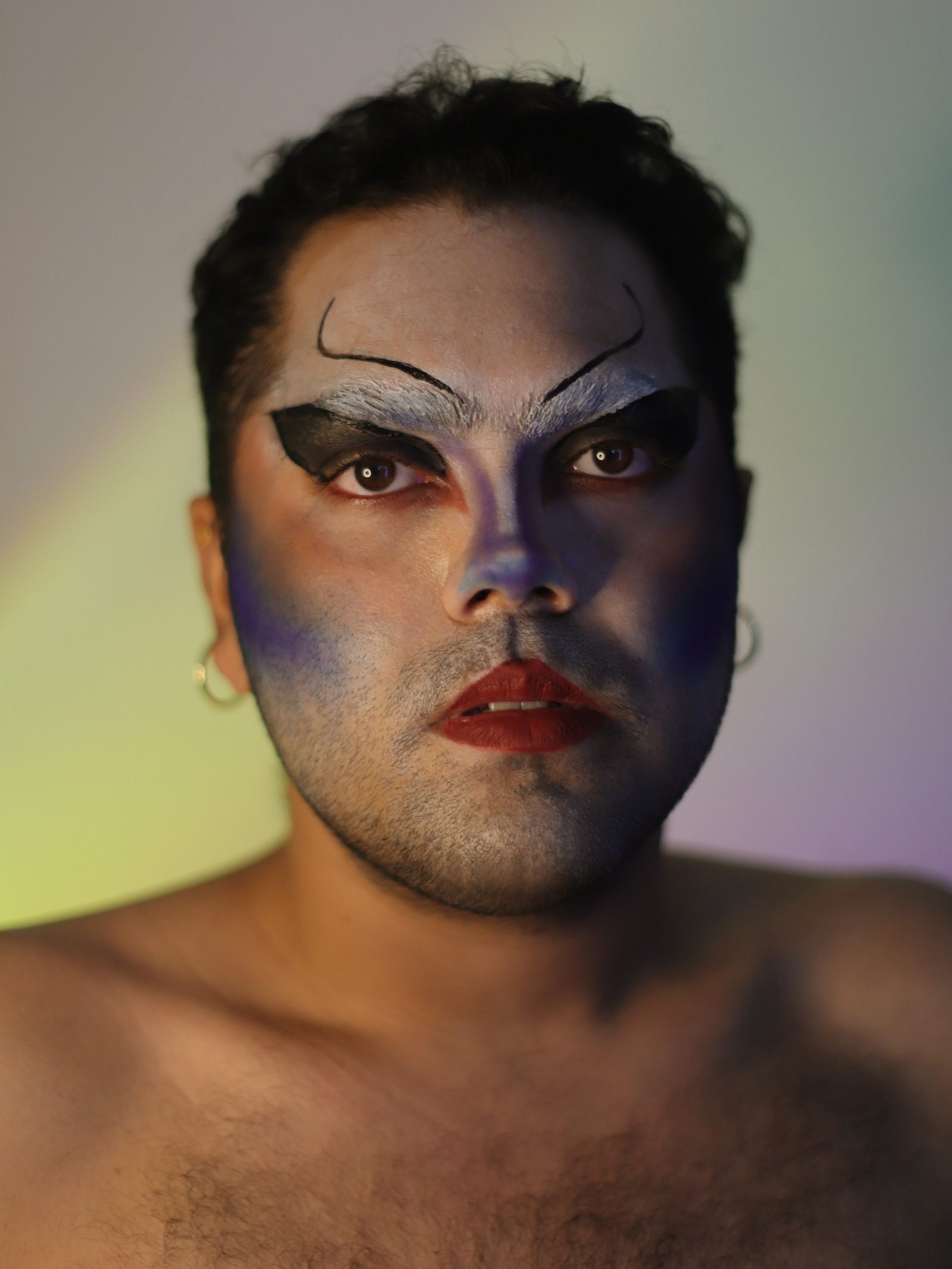
Self-portrait with drag makeup made by Mariana (15), a bisexual girl who experiences gender corrective violence.
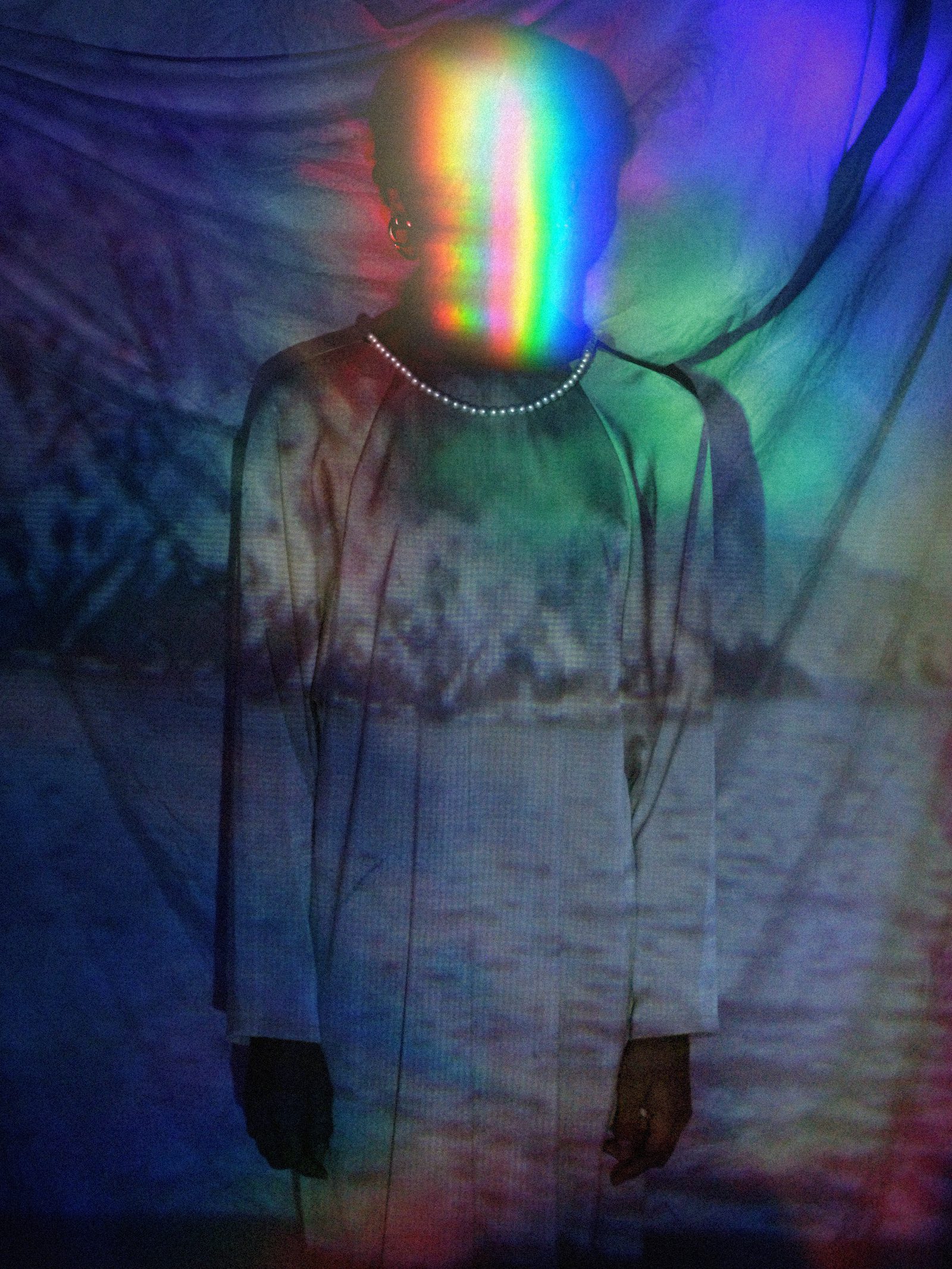
Osiris Evangeline (22) is a Venezuelan trans woman. As a teenager she revealed her diversity. Over time she began to be feminine. After emigrating and moving away from the place where she was born, she transitioned to what she always was, a woman.
Osiris: “They watched me grow up knowing I was Angelo, they will never accept that I am a woman. When I emigrated no one knew my story and I am a woman”. This photograph recreates a dream Osiris had: dress, pearls, and a rainbow. And since everything she dreams comes true, we took this photo.
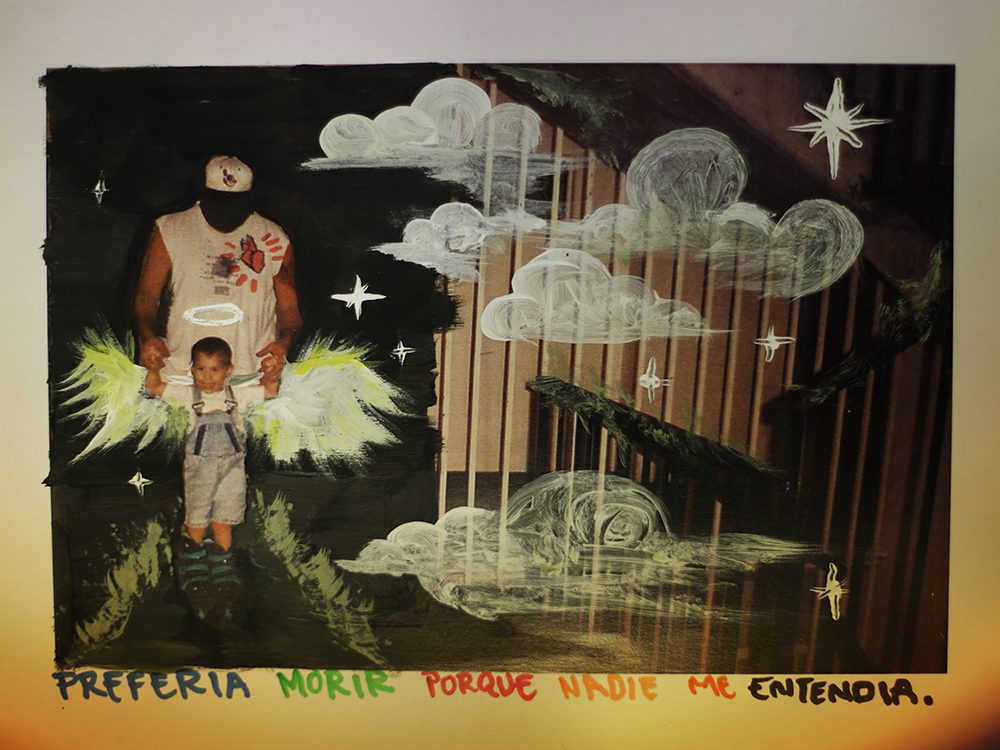
Intervention made by Erick (28) Venezuelan gay and queer man. Erick’s family archive. 1997, Caricuao, Caracas, Venezuela.
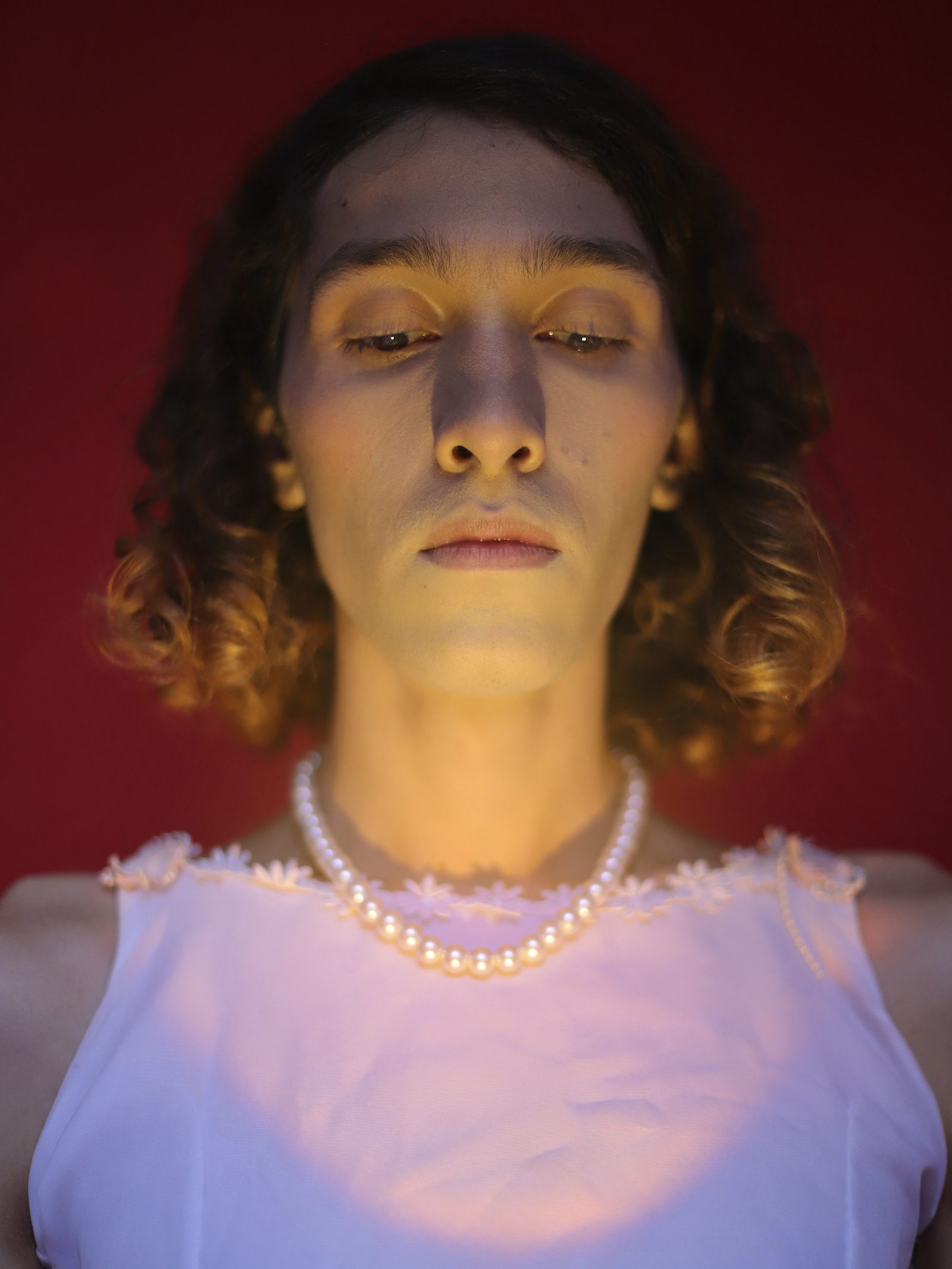
Agnes (23) is a Venezuelan trans woman. Her biological family still calls her by her dead name. Gender transition involves erasing an imposed past and sometimes family members resist that change.
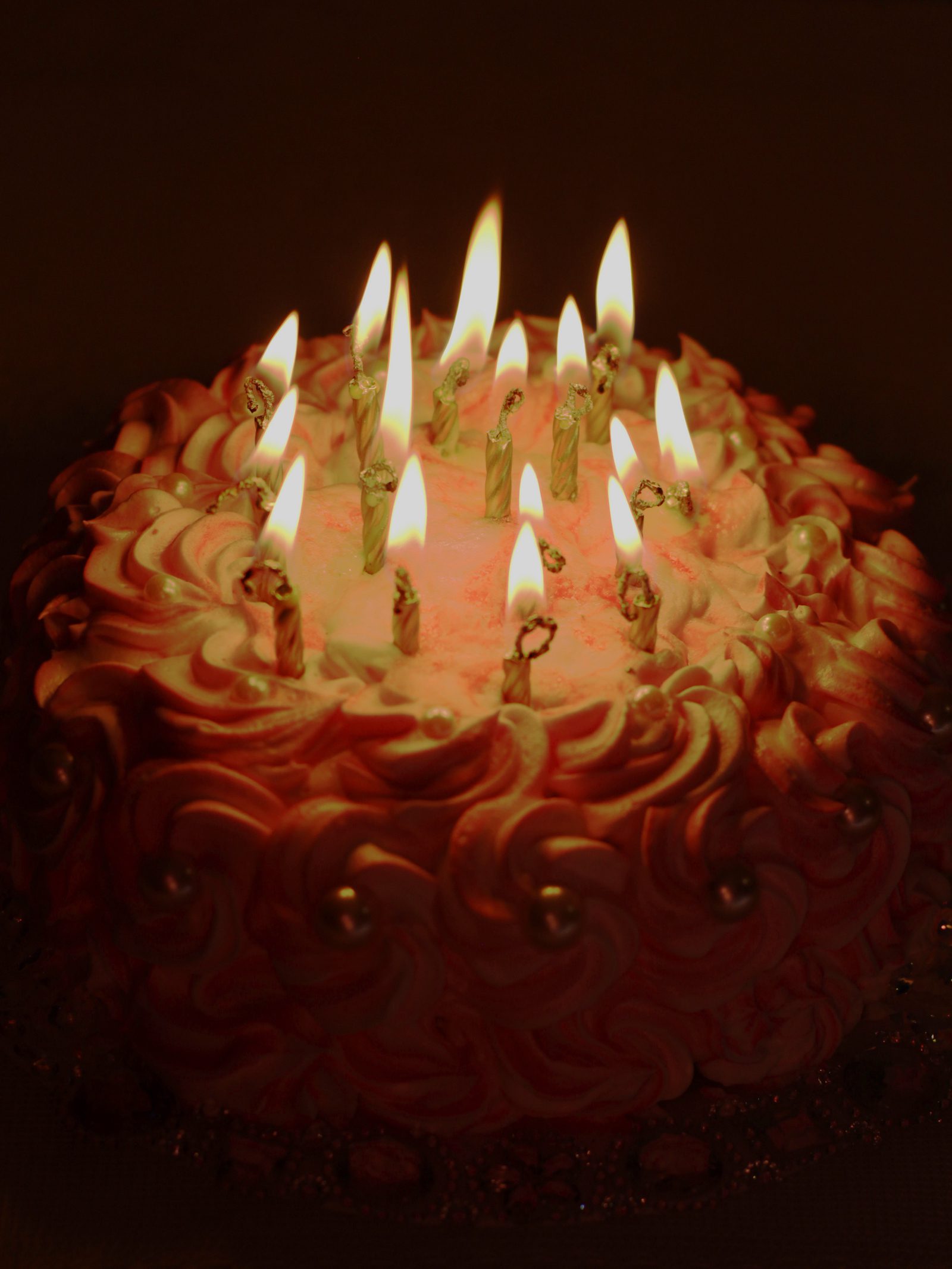
The cake is a symbol of family celebration and an object that represents the passing of time. In family albums this element is associated with a domestic-feminine space.
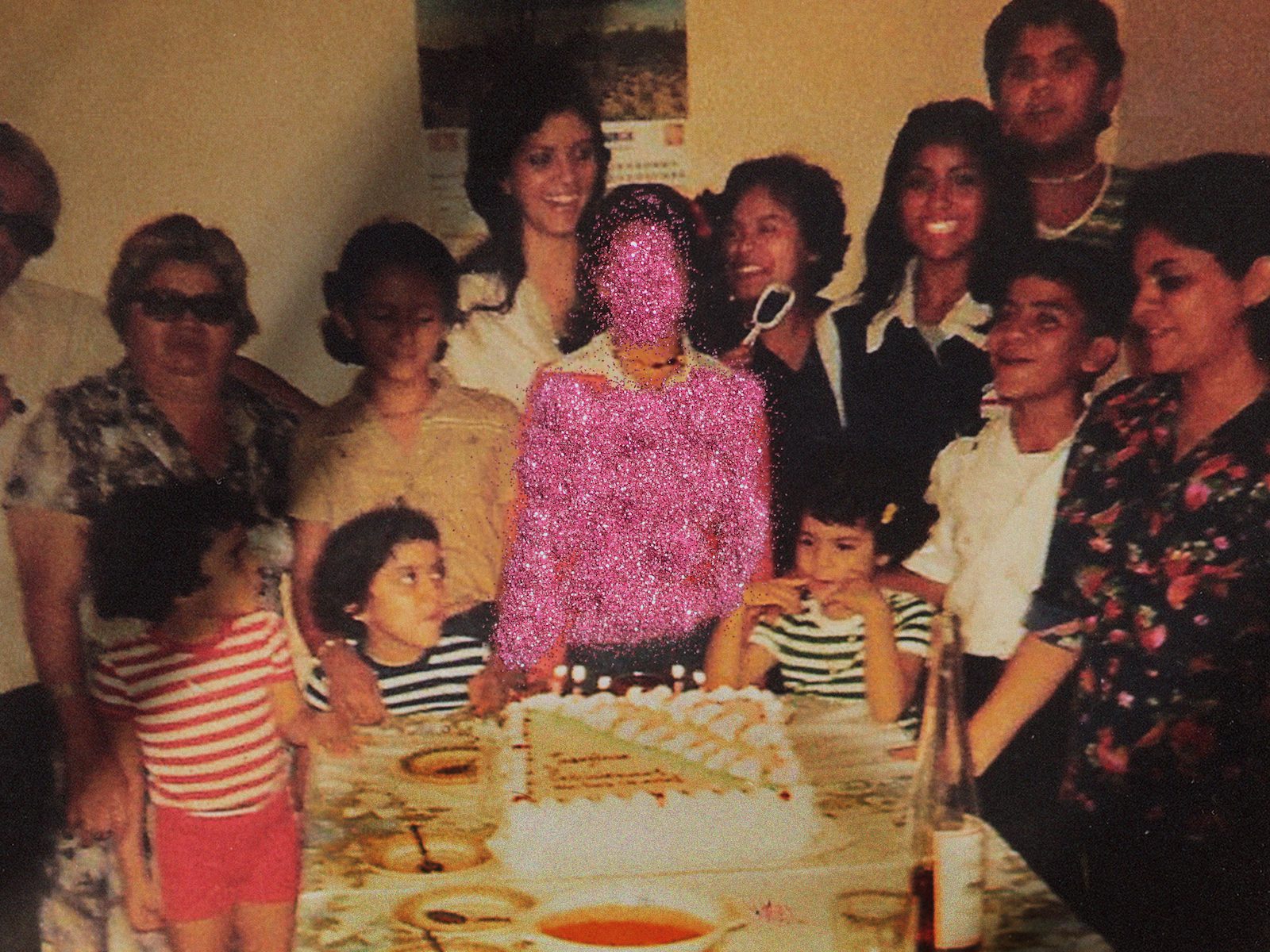
Grandparents, aunts and cousins reunited to celebrate Beatriz’s 15th birthday. Personal family archive. 1970’s, Catia, Caracas, Venezuela.
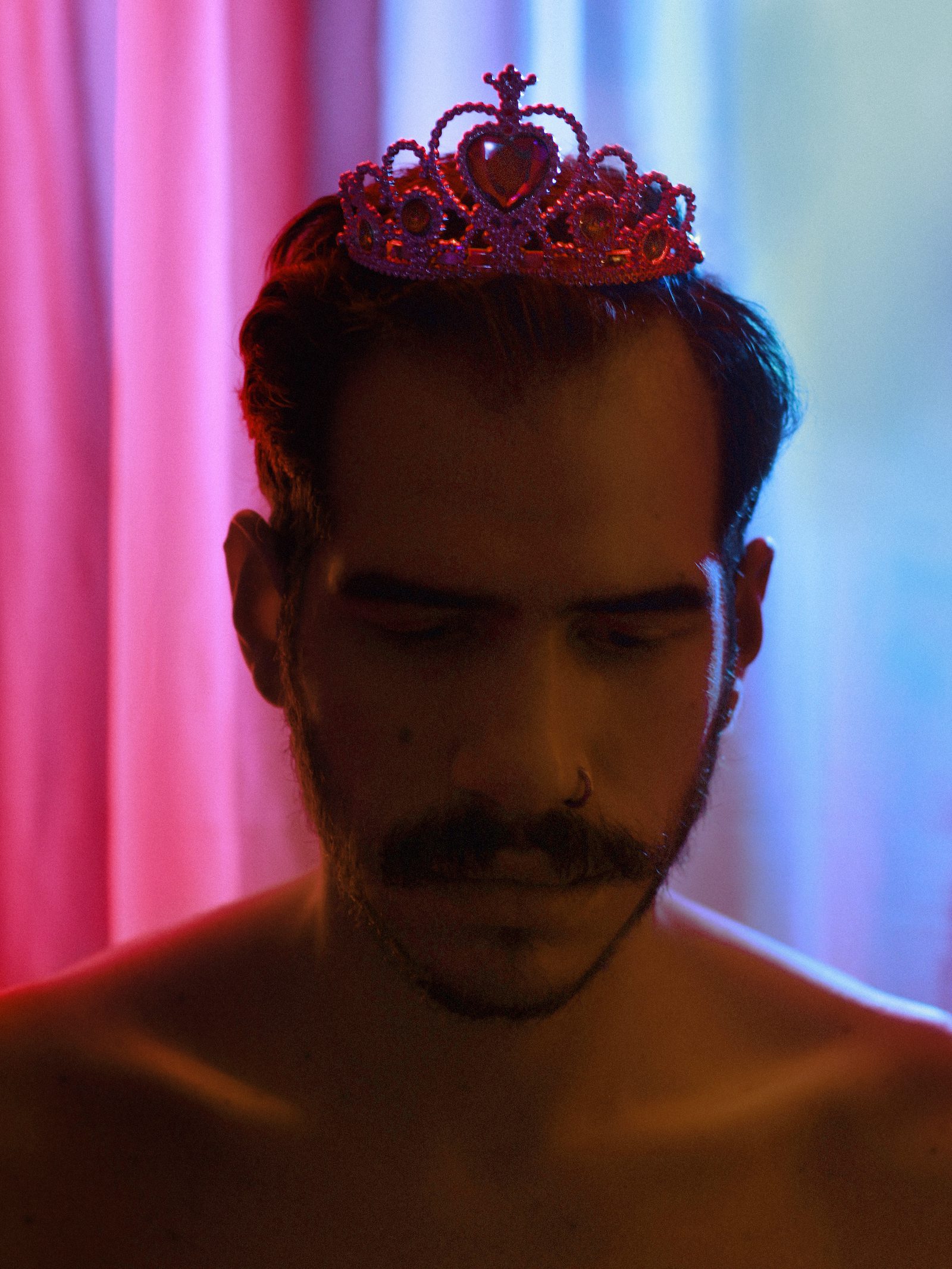
Male identities, regardless of their sexual orientation, cannot explore their feminine and sensitive side because they must respond to a binary, heteronormative and stereotypical gender performativity.
Gay and queer men exist. Erick Perez (28) is a Venezuelan queer gay man. He is still discriminated against for having a different sexual identity and orientation than his family.
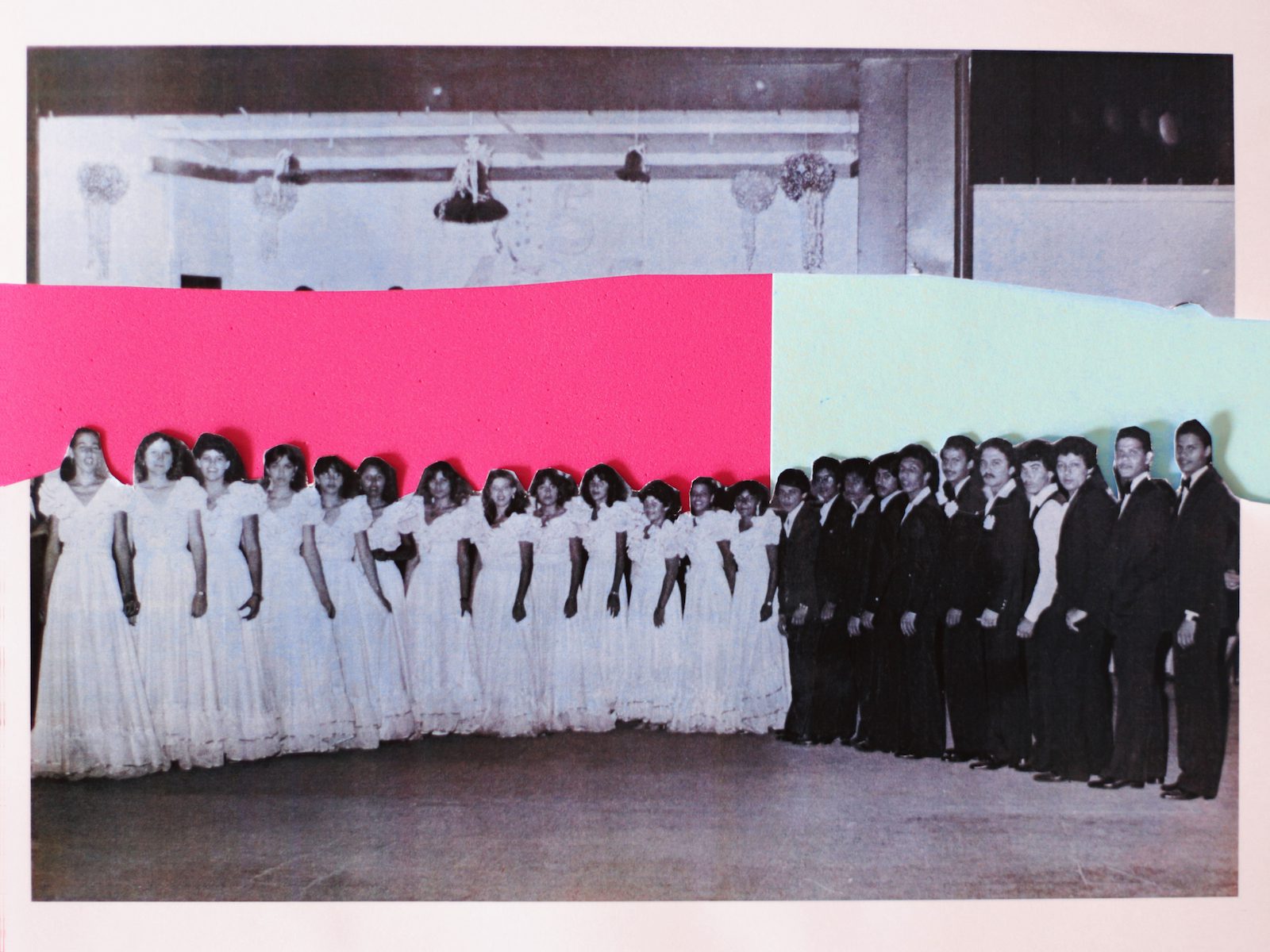
Binary violence establishes gender codes: clothing, colors and body performativities. unrecognized, Maracaibo, Zulia, Venezuela.
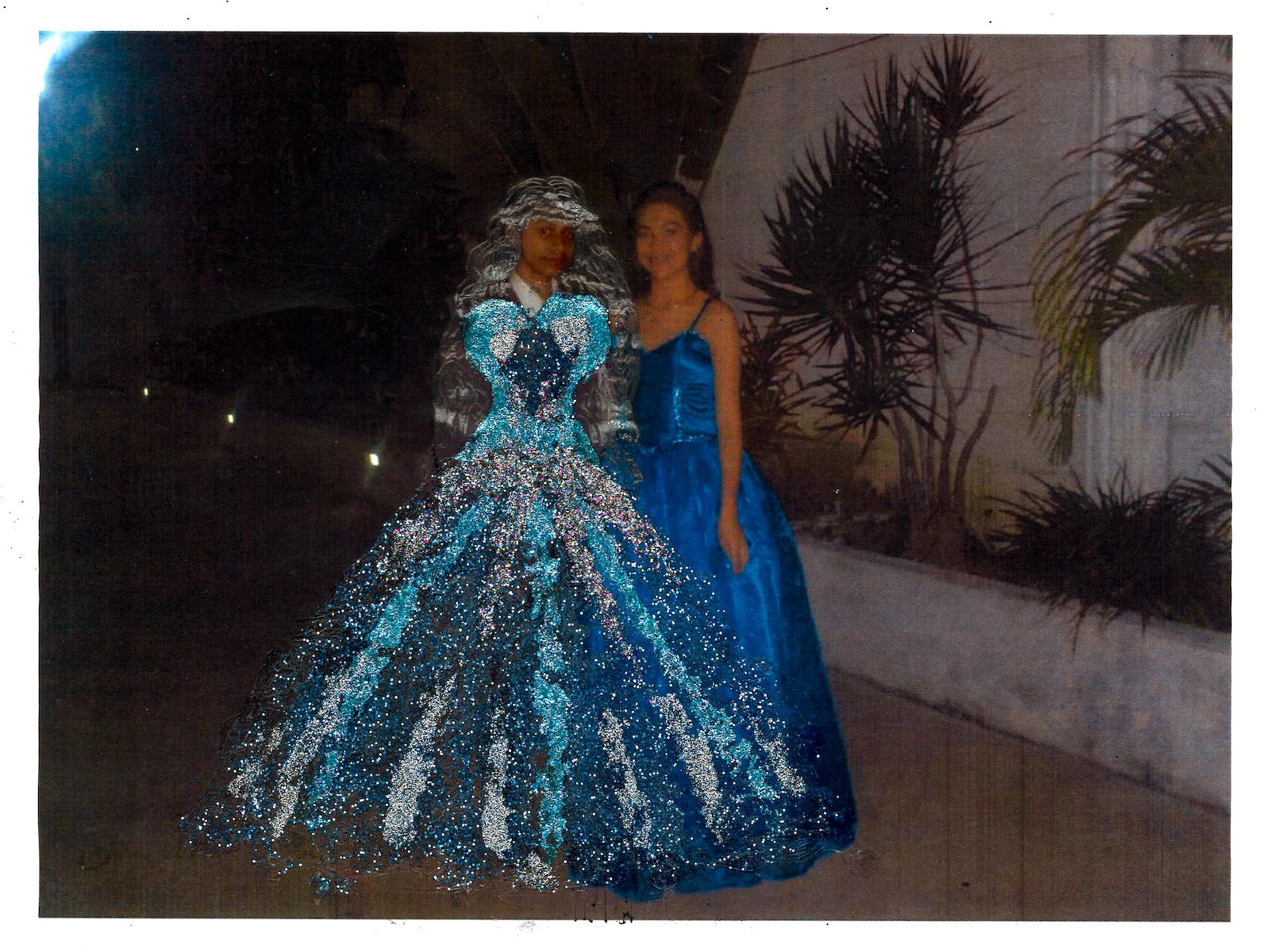
Intervention made by Aurora (19) Venezuelan trans woman. Aurora’s family archive. 2016, Mérida, Venezuela
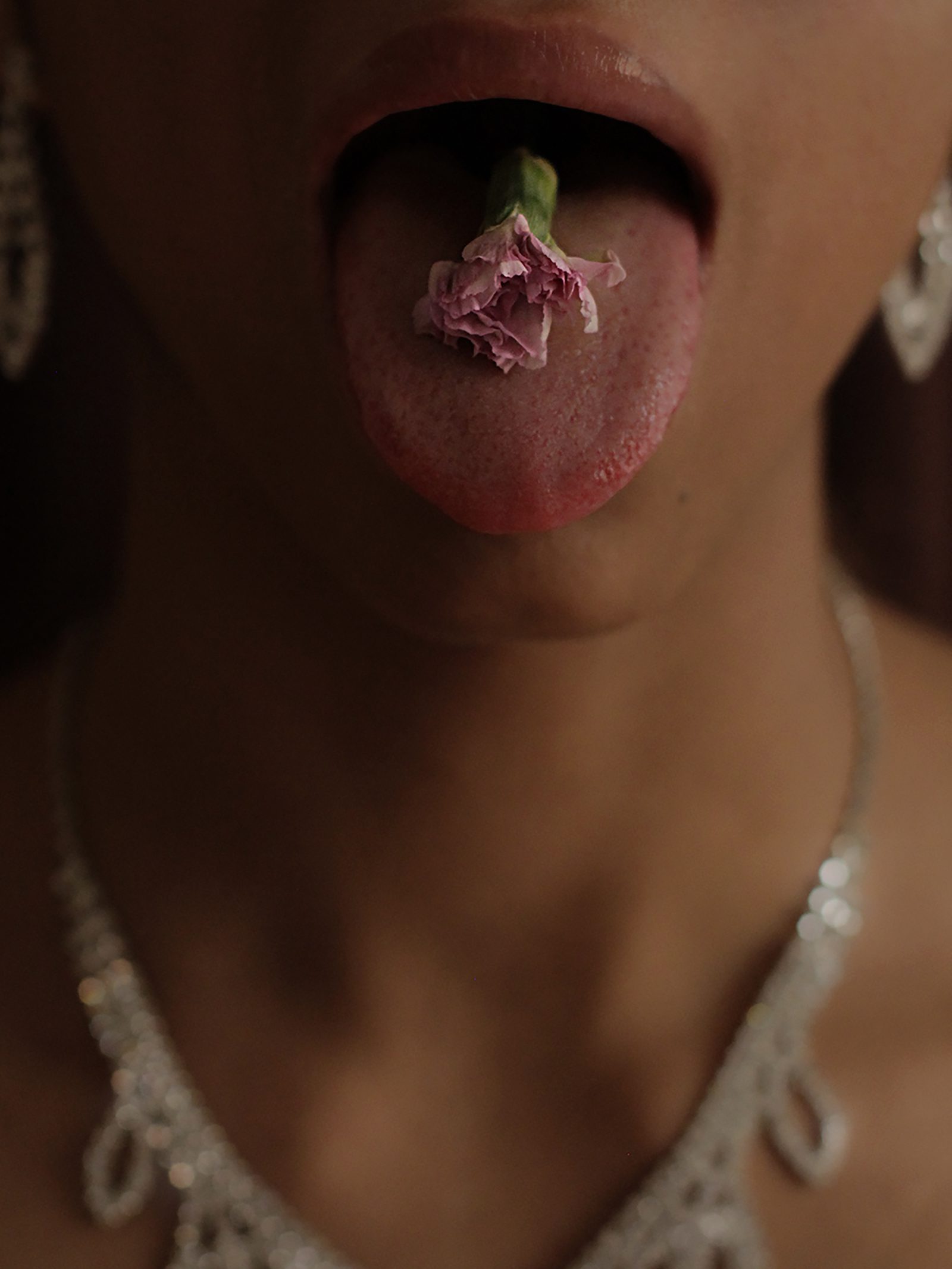
Binarism and heteronormativity associate the feminine with symbols linked to the fragile. Flowers are elements normatively connected to women. Flowers have no gender.
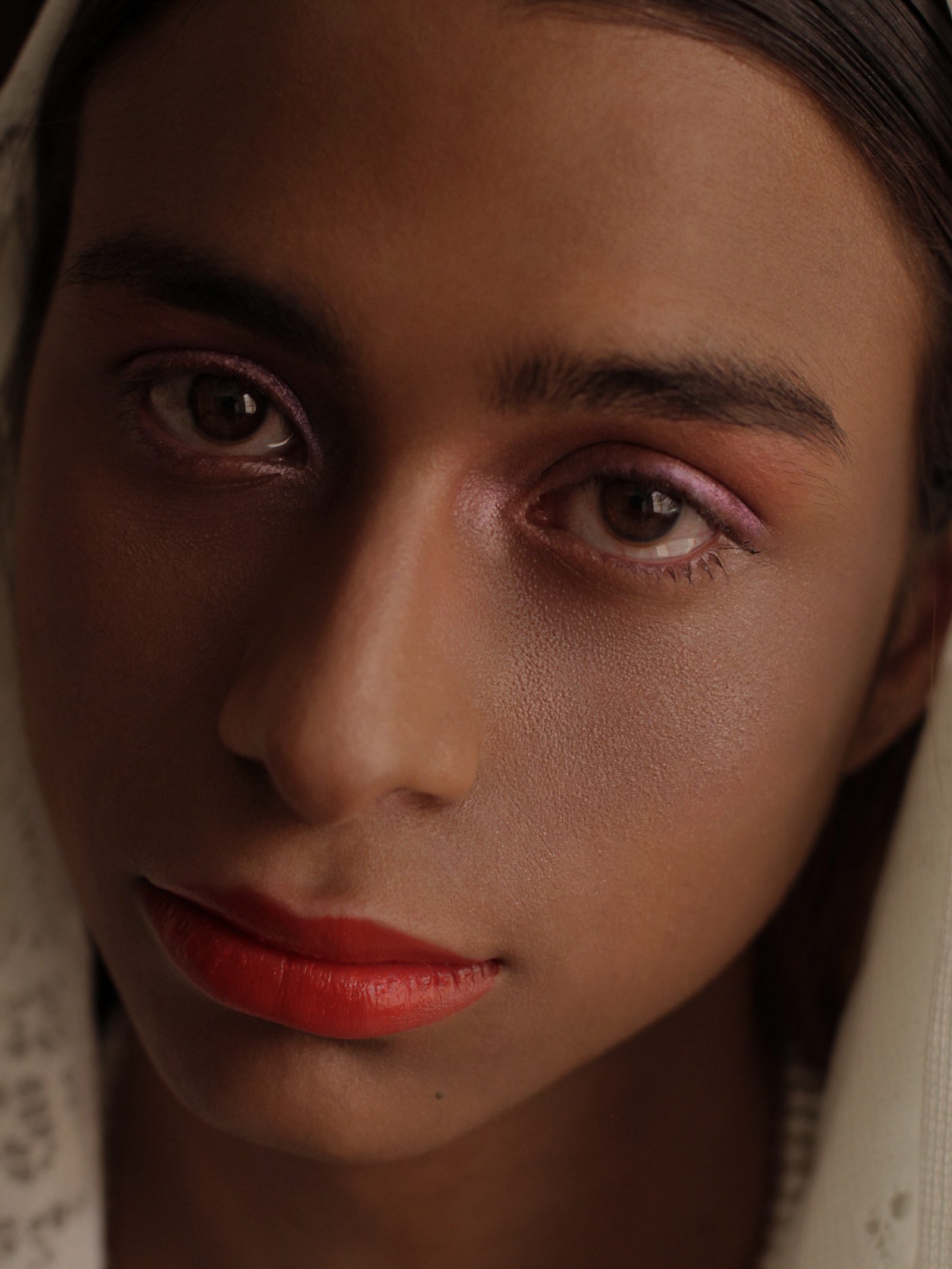
Aurora (19) is a Venezuelan trans woman. At the age of 13 she began to explore her identity. At 17 she migrated and began to live her transition freely.
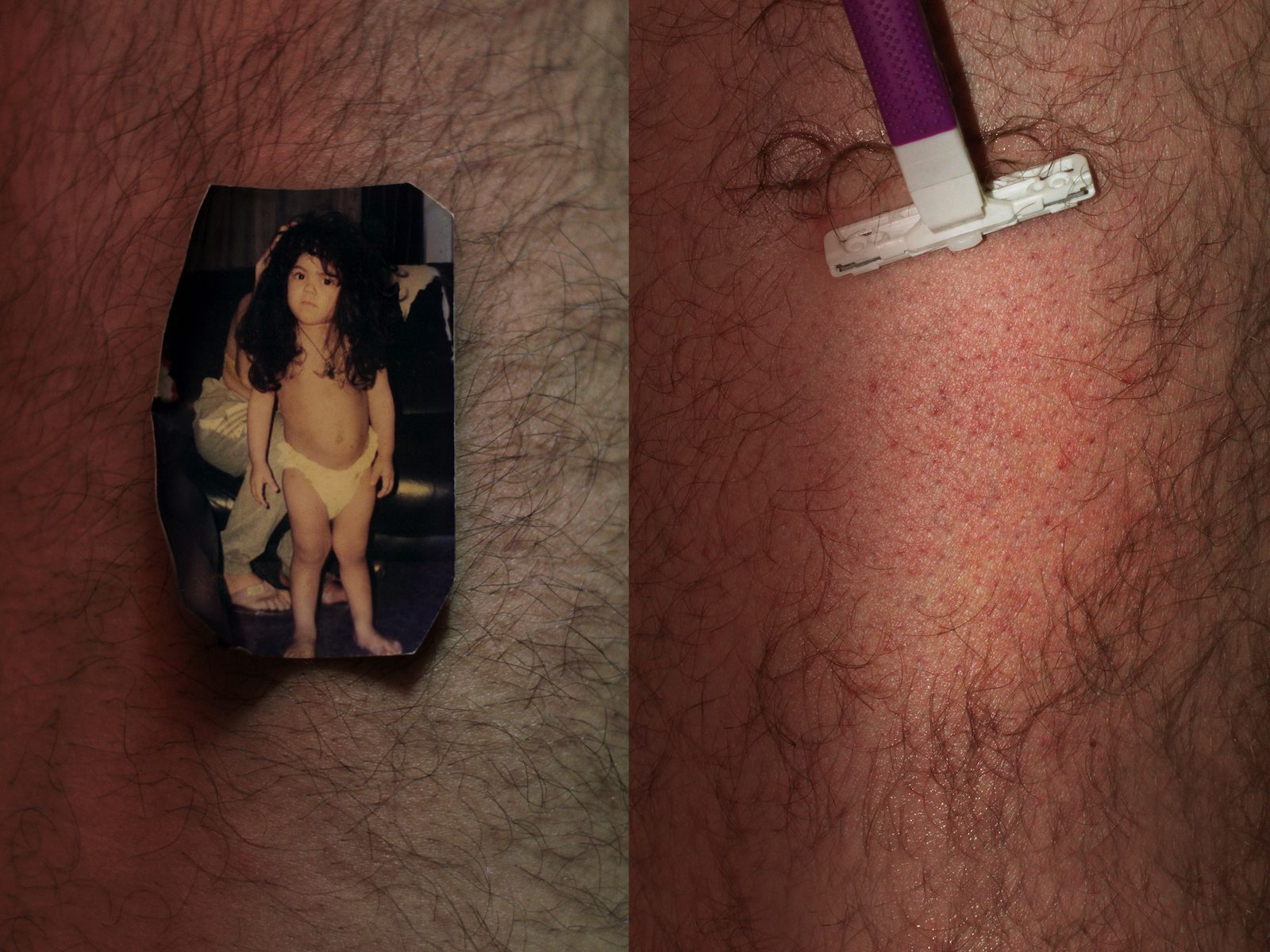
Photo 1: My mother always placed her hair on top of me in the form of a wig. Although mom grew up in a violent, binary and normative environment, she always looked for ways to show me signs of diversity. We always had a sincere relationship, even though the family always questioned it. In 2013 she passed away and I went in search of building a new chosen family.
Photo 2: metaphor about absence.
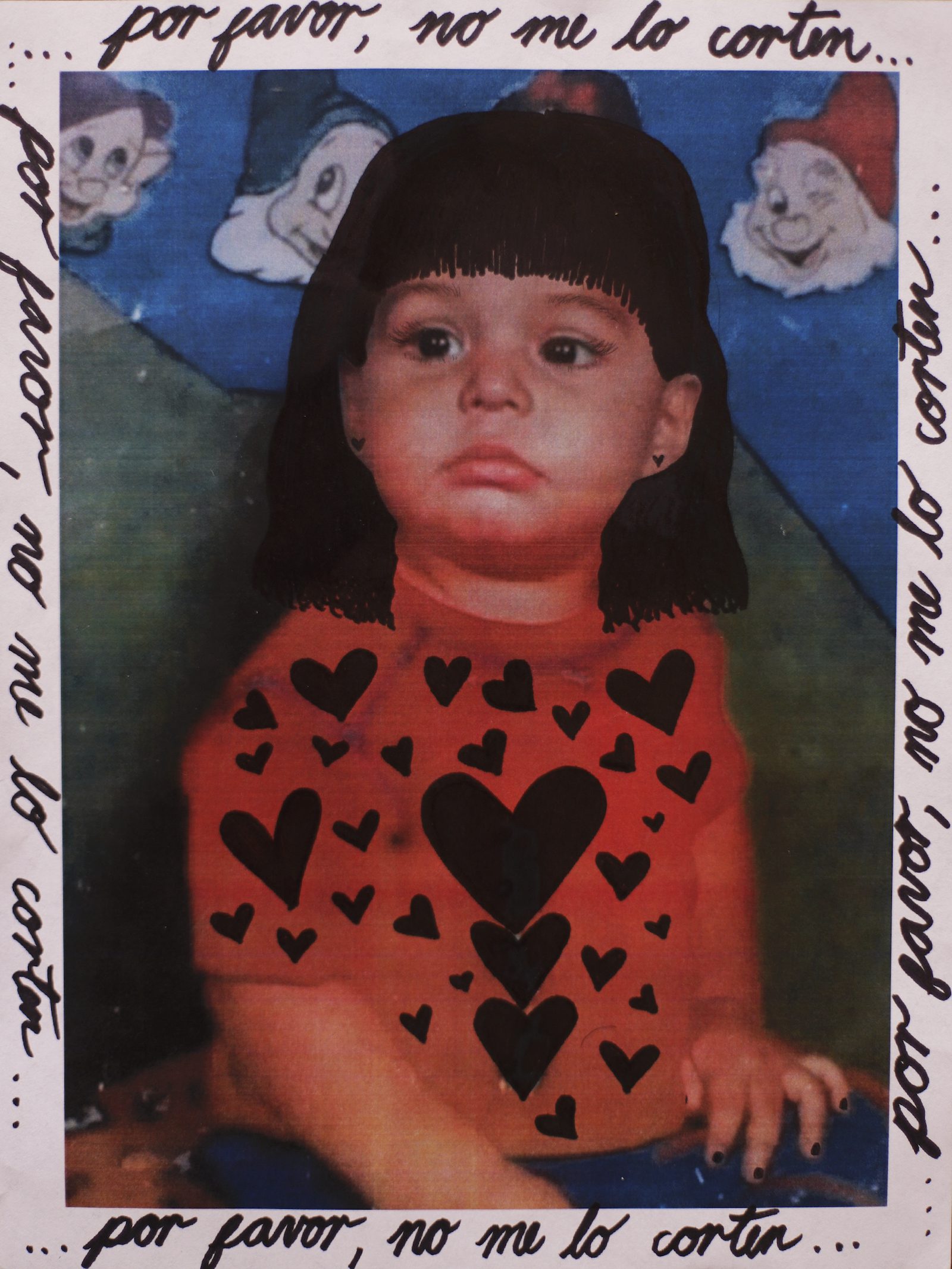
Intervention by Osiris (22) Venezuelan trans woman. Osiris’ family archive. 2002, Mérida, Venezuela.
This series is the PRIDE PHOTO AWARD 2023. The jury applauds Pérez’s decision to incorporate multiple stories from various LGBTQIA+ people and implement this playful mode of regaining control on one’s own history. Demonstrating the importance of inclusion and identity in historical archiving. As such, the series fits well with this year’s PRIDE PHOTO theme.
Looking again into their personal family albums, Andrés Gregorio Pérez realized that they did not see their true selves represented in the photographs. Instead they saw a representation of the imposed expectations of their biological family. Gender-neutral parenting is still exceptional.
When Pérez discussed this with other LGBTQIA+ people, many appeared not to recognize their identity in early family photos either. ‘Dead Family’ is an artistic research project on the function of the family archive. These albums often portray dominant, binary, heteronormative narratives and offer little space for other identities, rendering them invisible throughout historical records.
Perez’s series embraces, engages and encourages the plurality of the LGBTQIA+ community. Each participant was invited to make a creative intervention on their personal family album, and imagine what an inclusive memory, reflecting their true identity, would feel like.
About the photographer
Andrés Pérez is a non-binary artist and self-taught photographer born in Venezuela in 1993. His art and film studies at the Universidad Central de Venezuela built a sensibility for the image. In 2019 they migrated to Bogota-Colombia and this trip coincided with the decision to start their photographic career.
Their narratives are focused on Venezuelan migration especially LGBTIQA+, identity, gender, queer body and binary violence. They address other themes related to the anti-patriarchal narrative and the deconstruction of the heteronormative with the interest of preserving a more diverse memory. As a storyteller, they not only feel the need to narrate others, they are also interested in speaking from an intimate and autobiographical place. Their visual language is a mix between portraiture, documentary narratives, fashion and expanded photography.
During 2021 they were part of the Semillero Migrante program, a space in which they developed their first project Espectro. Winner of the Pride Photo Award 2023 Series category, with ‘Dead family’. Scholarship in Creadores de imágenes (2022) and CAMPO (2021). Their work has been exhibited in: Salón Nacional de la coexistencia 2021 (Venezuela), Encuentro Fotográfico de Santander (Colombia), Organización Nelson Garrido (Venezuela), Vist Projects (LATAM) and National Museum of Photography (Norway).

